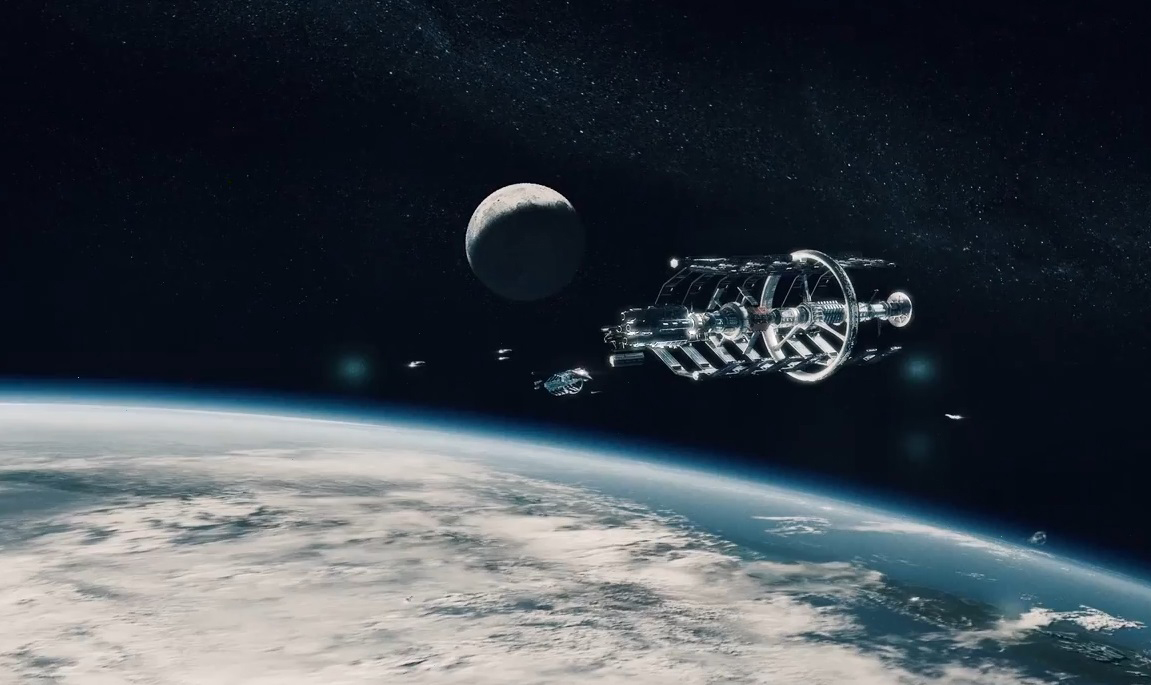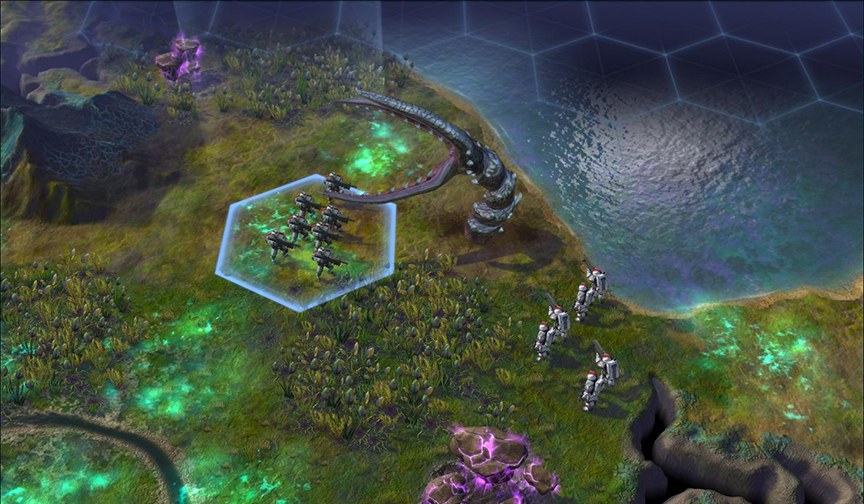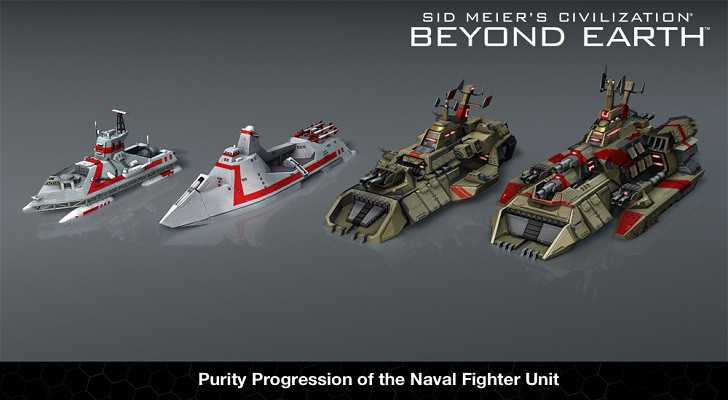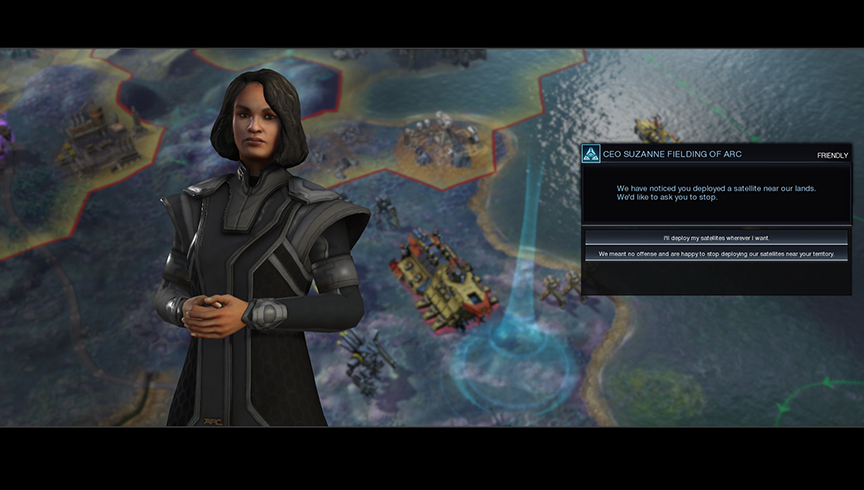
A legend no long in the making, but more ‘expanding on its empire’, the longstanding Sid Meier’s Civilization series of Turn-based Strategy games has advanced sufficiently that it’s no longer satisfied with the same old Terra Firma. After conquering the world, there’s only one place to go, and that’s a different star system. Set far in advance of previous Civilization games, this time you don’t choose a conquering power, but grow one organically in fresh soil. So grab a map, some snacks and beverages, and hit the road with Civilization: Beyond Earth.
Sid Meier’s Civilization: Beyond Earth is developed by Firaxis Games and Published by 2K Games
Release Date: Oct 24, 2014
Rated:M
Genre: 4X Turn-based Strategy
Consoles: PC, OS X, Linux

No, not as old as civilization itself, it just feels that way
The Civilization franchise (Civ for those of you too cool to actually say the whole word) has been around for a very long time. First emerging back in 1991, this thing ran on DOS, back when big ideas had to be explored through basic graphics and simple interface. I’ve mulled on this idea before but, there was something about those graphical limitations that really pushed the designers to get creative, unable to rest on some graphical ‘wow’ factor. No surprise then that a board game, which is what most people would have thought of as ‘interactive gaming’ at that time, about global domination and building an empire in one’s own image (or, the image of whichever empire you championed anyway) became such a hit. A simple, powerful concept that taps into a love of history (not to mention ego, ‘an empire to stand test of time’? Sheesh) combined with emerging technology, in a format that would be familiar to anyone who had a family ‘game night’ (For those of you born after the mid 90s, we used to play board games together, think of it like Wii ‘party games’ version 1.0) anyway, then there was the scope and all that addictive gameplay. I’m not sure anything passes the time as frighteningly fast as these sort of strategy titles. A turn based 4X (eXplore, eXpand, eXploit, and eXterminate) Civilization was massively successful. In terms of exposure and influence, it might be the most important game of its kind, but I don’t think its importance to videogames and home computing in general should be overlooked. Regardless, my point is that, for about as long as we’ve been gaming at home, lots of us have had a ‘Civilization’, as we’ve advanced, so has it… and now it’s taking to the stars, again… sort of.

This seems familiar…
The spiritual successor to Sid Meiers Alpha Centauri, Beyond Earth is the first in the main Civilization series to spread its wings (rockets?) and go…. well, I think you get the idea. Released in 1999, Alpha Centauri explored science fiction themes in a Civ like setting, and received a lot of critical praise, particularly for its story. Unfortunately, it was a sales flop Flash forward to today, built on the highly touted engine of Civ 5 (reigning King of the genre), Civilization: Beyond Earth takes place as mankind recovers from something called ‘The Great Mistake’, struggling to survive on Earth, they leap to the stars to try again. Now, there’s a fairly amusing analogy here about Alpha Centauri, it’s sales, and going into space to ‘try again’. However, I feel it would be tacky to mention it.

Into the unknown
The player starts their game prepping for the journey. There are eight factions vying for your attention. As much ideological as geographical, your chosen faction will affect your starting point with faction specific traits. Then, every nerds power fantasy, build yourself a ship with which to hurl yourself into the depths of space, stock it to the gills with cargo of your choice, and handpick those worthy of starting your new colony. Each of these choices, along with “technologies” and “affinities”, will greatly affect the players experience in their new world, adding variety and replayability to an already dense genre. As for the technologies and affinities I mentioned, the standard Civilization progression model features technology branches, where Beyond Earth features a web. Affinities are decisions based on a philosophy, Harmony, Supremacy, or Purity, which will inform the sort of technology available to the player, which will in turn direct gameplay and aesthetic. Now you’ve just an entire world to explore ,(eXpand, eXploit, and eXterminate opposing factions) and dominate.
A classic title that has helped define a genre, such distinction cuts both ways. Fans of the series have been drawn by the Civilization specific take on turn based 4X strategy, a design so solid it has (oh god, here I go) ‘built an empire to stand the test of time’. Civilization: Beyond Earth. is hitching its rocket to a change of pace, as well as setting. Unfortunately, this is adding something new to Civilization as we know it (man, feels like another analogy coming on). As a result, long term players of the franchise might either appreciate new ideas and a fresh experience, or hate that it’s not the same ole Civ. But, should you want to keep you feet on the same ole ground, go ahead, the rest of us will be looking to the stars.
Civilization: Beyond Earth is available now for the PC




LOL… not tacky at all, I was thinking the same thing.
Comments are closed.